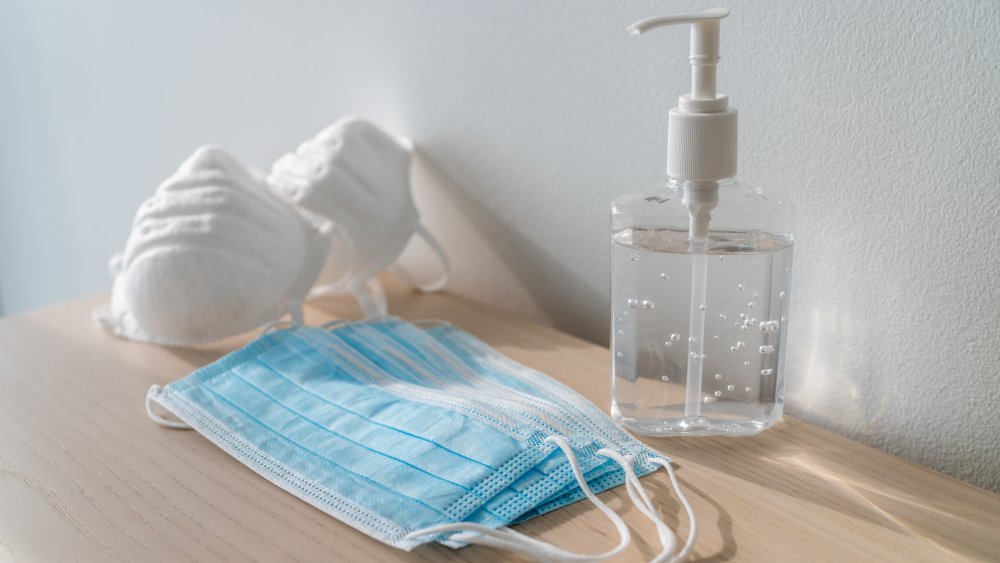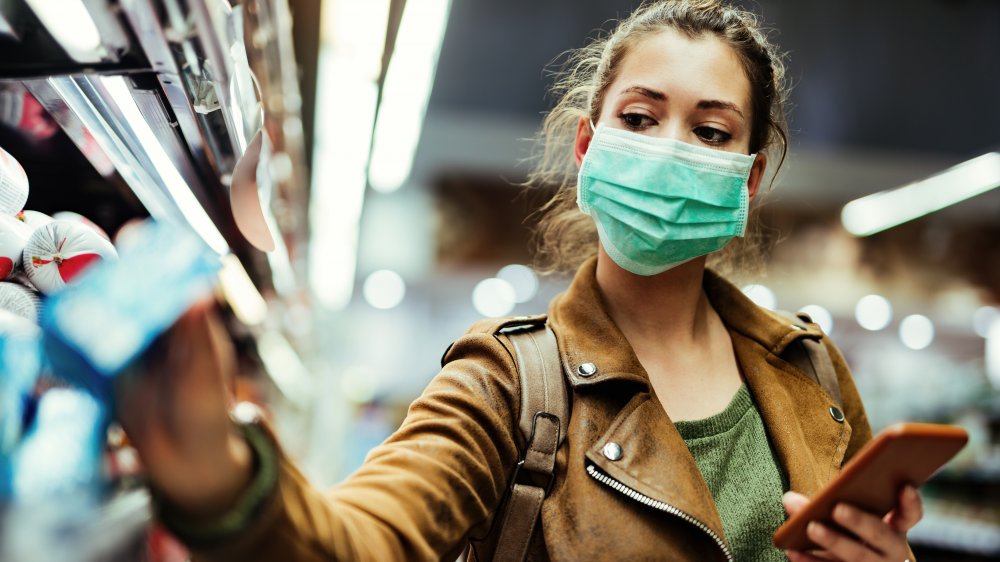Can You Really Get Coronavirus Through Your Eyes?
As the coronavirus pandemic picked up speed, we were told that we could best protect ourselves and those around us by wearing face masks and by social distancing. Now doctors are warning that COVID-19 might be transmitted through the eyes, too.
The case supporting eye transmission was raised when Dr. Joseph Fair told Today that he had boarded a full flight wearing gloves and a face mask, and he contracted COVID-19 anyway. He was sitting next to someone, but Fair wasn't wearing eye protection.
Back in February, a group of doctors published a warning in the medical journal The Lancet that transmission through the eyes of what was then called the novel coronavirus was being ignored. The warning was repeated at the end of March, after a small study on patients in China found that 12 out of 38 patients had eye infections (via JAMA Network). In a note on Humans, Viruses, and the Eye, Dr. Alfred Sommer, epidemiologist at Johns Hopkins Bloomberg School of Public Health wrote, "Ironically, the earliest cries of alarm about COVID-19 were made by Dr. Li Wenliang, a Chinese ophthalmologist caring for patients in Wuhan. He earned the ire of the Chinese government for alerting the public and calling for action. He died at age 34 years from the disease. We do not know whether he became infected from contact with patients' eyes" (via JAMA Network).
Eye transmission is the least common way get coronavirus
Does this mean we ought to start wearing goggles to go with our face masks, too? Likely not, because NBC medical correspondent John Torres says eye transmission usually happens as a result of contact, which is when you touch something where the virus lives, and then you rub your eye, which allows the virus to infect you the same way it does when it enters through your nose and mouth. You can also catch the virus if someone who is ill or asymptomatic coughs or sneezes in your face, although the chance of this is very, very small, because when you're near someone that coughs or sneezes, your first instinct is to close your eyes.
Torres also said it's important to know that if someone who has the virus and coughs or sneezes, it might infect you by entering your nose and mouth, but it's not a problem for your eyes, because that's not how aerosol transmission works. We also have extra words of reassurance from Anthony Fauci of the White House Coronavirus Task Force, who also says eye transmission the least common way of contracting the disease.
Torres' recommendation on goggles? He said, "...if you're in an area where you can't (practice) social distancing" or "if you're around people ... coughing or sneezing a lot," you might want to consider it. However, he continued, "For the majority of us just walking around every day, especially outside, other than sunglasses or regular vision glasses, I'm not sure that (eye protection, like goggles) would add that much benefit."

